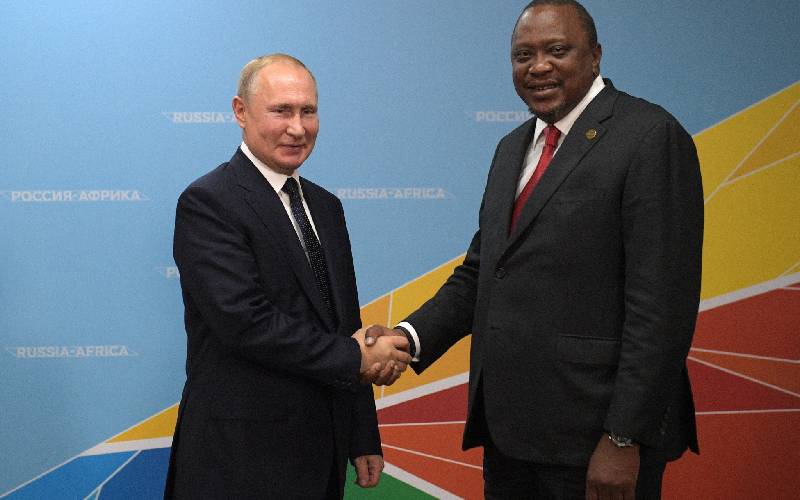
Russia President Vladimir Putin with President Uhuru Kenyatta on the sidelines of the Russia-Africa Summit. [Courtesy, Twitter]
Wartime British Prime Minister Winston Churchill said Russia was “a riddle, wrapped in a mystery, inside an enigma”. He described the country as “an inscrutable and menacing land that plays by its own rules usually to the detriment of those who choose more open regulations”, and summed it with imagery that Russia, which he called the “other” had separated herself from the rest of the world by drawing an “iron curtain”.